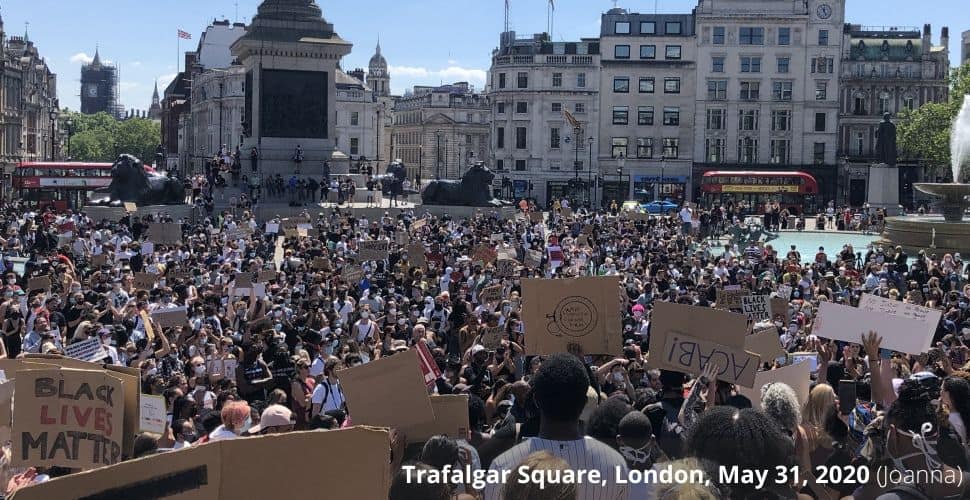The ever-present structural issues of racism, discrimination and inequality have been catapulted to front and center as Black Lives Matter protests in the U.S. and around the world, sparked by the murder of George Floyd, demand an end to violent systemic racism.
No doubt you’ve seen businesses, celebrities and organizations of every stripe – including Freedom United – publicly supporting the movement and joining conversations to recognize and act on the need to dismantle racist structures.
But valid concerns of piggy-backing on the Black Lives Matter movement and merely paying lip-service to calls for change are necessary reminders that words alone aren’t enough – they must be followed by genuine reflection and change.
The anti-trafficking sector is not immune to pervasive discrimination, racism and white saviourism, and we know a lot of work remains to be done.
Debbie Ariyo, founder and CEO of AFRUCA and Chair of the U.K. BME Anti-Slavery Network, outlines the U.K. anti-trafficking sector’s very own racism problem for Thomson Reuters Foundation:
There are many areas of our work where a lack of diversity and inclusion is apparent. Many survivors of human trafficking are from abroad (for example, victims of domestic slavery, forced labour and sexual slavery) or from UK black and ethnic minority communities (such as victims of county lines trafficking with children used to transport drugs).
It is surprising that many anti-trafficking charities do not have staff members from these different communities who can provide culturally appropriate support services that best meet the needs of survivors.
With the plethora of anti-trafficking organisations spread out across the country, there are only five or six with a CEO from a black or ethnic minority background. Even worse, most Trustees do not reflect the demography of their charities’ service users.
Our approach to community based anti-trafficking prevention is derisory. There is little effort to engage communities affected by the issues we address. Where efforts are made, these are very tokenistic – employing top-down approaches.
The way forward is really a much better recognition of the negative impact these failings have created with strong efforts made to change the status quo. Charities should be bold in developing and implementing action plans to increase the number of staff and trustees in their organisations reflective of the ethnic make-up of their service users, and seek out individuals from ethnic communities with the requisite expertise and skills to recruit in senior management positions.
Freedom United is committed to supporting the U.K. BME Anti-Slavery Network’s objectives to ensure this moment marks a turning point in the way anti-trafficking work is conducted.
The anti-trafficking movement fails to consistently empower survivors and create the space for leadership from those with lived experience. We seek to support the U.K. BME Anti-Slavery Network’s work by continuing to hold ourselves and the wider anti-modern slavery sector accountable through our My Story, My Dignity campaign.
We stand by our values and invite our community to get in touch if you think there’s something we can do to create a more inclusive anti-trafficking movement.







Freedom United is interested in hearing from our community and welcomes relevant, informed comments, advice, and insights that advance the conversation around our campaigns and advocacy. We value inclusivity and respect within our community. To be approved, your comments should be civil.
This seems like an oxymoron to me. The “white savior“ is not effective yet you ask the Non-profit companies (Aka “white saviors”), started by, I’m guessing, a majority of white people, To seek out and provide an avenue for these other ethnicities to help their own people? I get that these companies need indigenous people who know the language and culture, to work their own areas, but they aren’t able to seek out the positions themselves? Aren’t you then still relying on this “white savIor”?
Are you aware that these things happen in all races, creeds and religions. Are you aware how animals are treated. Are you aware of the pain my mother suffered when she took the “right to die”. Are you aware of the pain that I am suffering today and every day from discrimination. Are you aware of anything?